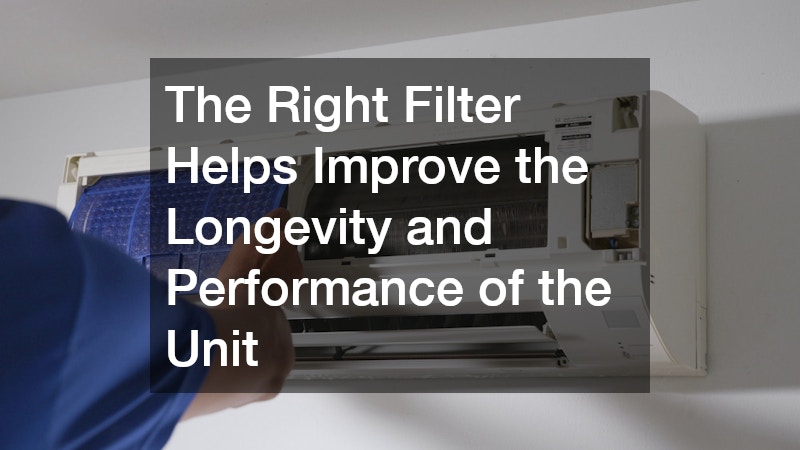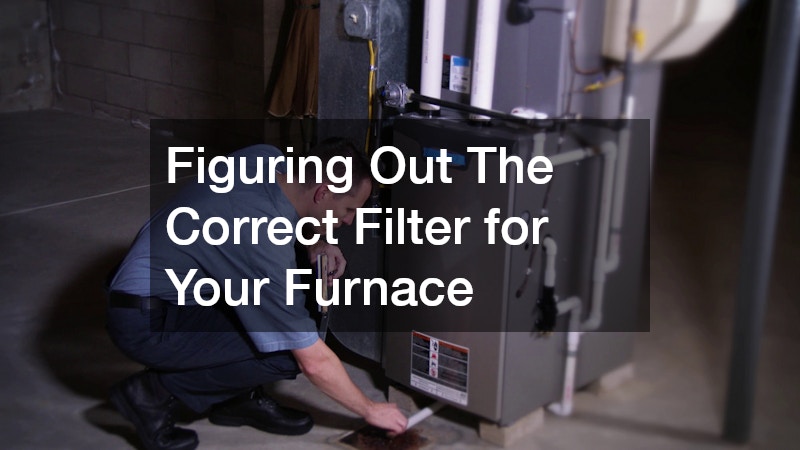Choosing the right furnace filter is essential for maintaining your home’s heating and cooling efficiency. Beyond safeguarding the system’s functionality, the right filter enhances air quality, promotes health, and ensures extended durability of heating and cooling units. This article delves into vital considerations for selecting the appropriate filter for your furnace.
Understanding Furnace Filters and Their Importance
Furnace filters are fundamental in an HVAC system, impacting both the efficiency of the heating and cooling operation and indoor air quality. Primarily, these filters trap dust, allergens, and other airborne particles, preventing them from circulating throughout the home. Their role in maintaining air quality cannot be underestimated, especially for households with allergy sufferers or pets, which can contribute greatly to indoor pollutants.
Equipping your HVAC system with the right filter helps improve the longevity and performance of the unit. A system operating with a clean and effective filter faces fewer operational hurdles, such as restricted airflow, leading to improved energy efficiency. Over time, this operational efficiency translates to cost savings on energy bills, demonstrating the significant role a good filter plays in overall household budget management.
Furnace filters come in a variety of types, each designed to serve specific needs. For instance, fiberglass filters are affordable but may not last as long or trap smaller particles effectively. Pleated filters, on the other hand, offer higher filtration capabilities but may require replacement more frequently, making it crucial to choose according to the unique demands of your home’s heating and cooling system.
Considering Filter Ratings and Measurements
One of the core considerations when selecting a furnace filter is its Minimum Efficiency Reporting Value (MERV) rating. The MERV rating indicates the filter’s ability to capture larger particles; the higher the rating, the finer the filtration. Homeowners should assess the ideal MERV rating based on their home’s indoor allergy and air quality management needs.
While a high MERV may seem appealing, picking one that’s not compatible with your furnace can reduce heating and cooling efficiency. Systems not designed for high-efficiency filters may struggle, leading to potential damage from restricted airflow. It is vital to consult your furnace’s manual or a technician to match the filter’s rating for the best performance outcomes.
Accurate measurements are equally crucial in selecting the right filter size. Filters are not universally sized, and even minor discrepancies can lead to inefficiencies such as air bypass, undermining the system’s ability to purify air effectively. Homeowners should meticulously measure their old filter or consult the furnace manual to ensure the new filter fits seamlessly into the system.
Types of Furnace Filters
The marketplace offers various types of furnace filters, each with unique benefits and downsides. Fiberglass filters are common due to their low cost, but they often lack durability and effectiveness in trapping finer particles, which may compromise indoor air quality. More expensive options, like pleated filters, are better at capturing microscopic allergens and dust, making them ideal for people with respiratory sensitivities.
Electrostatic filters offer a different approach, using charged fibers to attract and capture particles. These filters are effective against airborne bacteria and pollutants, contributing to a cleaner indoor environment. However, they might not be suitable for all furnace systems due to their higher air resistance, which could lead to a reduction in heating and cooling efficiency if not well-matched.
HEPA filters, known for their high filtration standard, capture up to 99.97% of particles, including those as small as 0.3 microns. While they are excellent for air purification, not all furnaces can accommodate them due to their density and restrictive air movement. It’s important to assess whether such a high-efficiency filter aligns with your system’s design capabilities and requirements, ensuring optimal function without increased energy consumption.
Maintenance and Replacement of Furnace Filters
Regular maintenance and timely replacement of furnace filters are critical to sustaining an HVAC system’s performance. Neglecting these tasks can lead to clogged filters, which strain the system and escalate energy costs due to increased energy use. Ideally, filters should be checked monthly and replaced every three months, though households with pets or allergy sensitivities might require more frequent replacements.
High-quality filters often come with higher durability, sustaining their performance over longer periods. Investing in such filters, while initially more costly, can save money in the long run by reducing the frequency of replacements and enhancing system efficiency. Furthermore, these investments safeguard your air quality, translating to improved health benefits for all household members.
Implementing a regular maintenance schedule, including professional inspections, extends the lifespan and efficiency of your heating and cooling systems. These routine checks can identify potential issues early, preventing system failures and costly repairs. Therefore, regular maintenance is a vital investment for ensuring your furnace’s longevity and peak performance.



